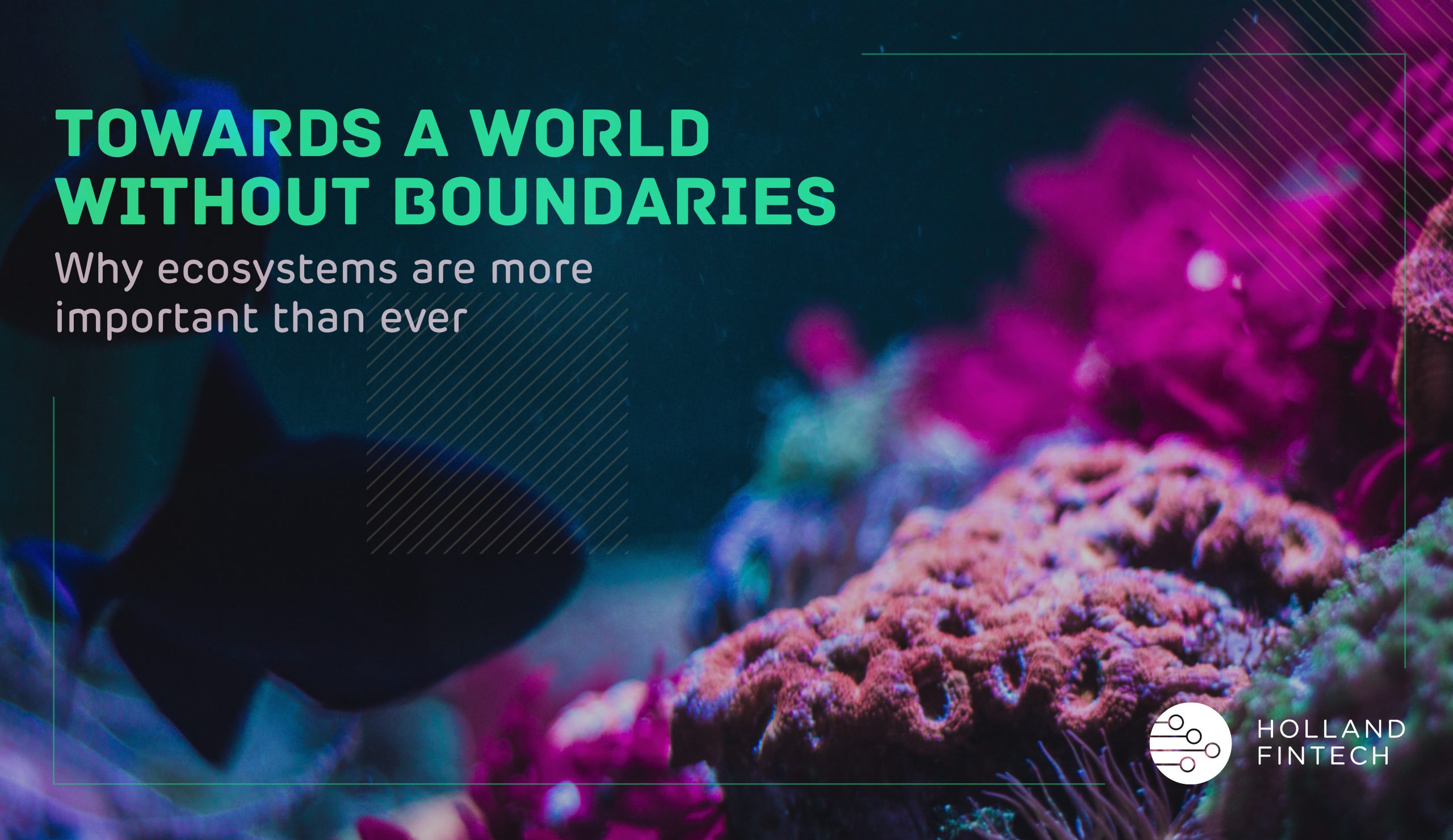Fintech and the Finance Sector need to build a stronger web than ever before
Agile business models have been a buzzword for over a decade now – but only in the last 8 or so weeks have we seen how important this is in practice. Most sturdy businesses have employed agility only partially successfully – in the way they operate their business – not at a strategic how or what level. That how and what is of the essence in times like these. Procedures for interactions between producers, clients, supply chains and business-to-consumer relationships are locked in place by legal, social and sometimes geographical boundaries. Right now, those boundaries are billowing in the wind – they don’t work during this crisis, and are even less likely to continue to work after this crisis is over.
Enter the ecosystem. The power of ecosystems isn’t new – but it is critical right now. A simple boolean search of “ecosystem + advantage” online provides overwhelming evidence that the value is there – we just need to use it right. The basic premise is that with the power of effective partnerships, businesses can scale faster by leveraging on expertise provided by a 3rd party, and thereby also expanding their customer base and product offering. Some companies (think Alibaba) take this a step further and have developed a group of standalone companies that compliment each other – leaving consumers to source services from one big web that all lead to the same spider.
Cool, but we believe that the same can be achieved with business ecosystems, like Holland Fintech. When looking at the financial value chain, we see that enormous potential for partnerships exists up and down the value chain – from the traditional and expected incumbent banks partnering with (or buying out of the market) a hot new fintech startup – but also more meaningfully than that – real value added partnerships that help scale the adoption of digital business tools and practices that allow for efficiency gains and in turn – a better customer experience, like service providers that leverage on digital core banking, or open banking API services. The key gain here is that this way of doing business allows you to pivot quickly to the biggest threat any business in the world faces: a changing customer base.
A changing customer base isn’t a bad thing – but an evaporating one is. When we look at how companies are dealing with the current pandemic and when we look at models that work, the ecosystem floats to the top as one of the most efficient, flexible solutions. Not only during this pandemic, but as the leading business model of the future. Imagine an entire marketplace full of plug and play possibilities, with seamless interoperability, allowing you to tailor your product on a whim, using realtime feedback to stay ahead of the curve. We’ve come up with three recommendations on how you can best get started as a true ecosystem player.
- Eyes wide open: The first step would be to reconnect and turn your attention to the world around you – reach out to partners, or put out an open call for collaboration – we see a lot of them, and many are successful.
- Map it out: we want to urge companies to do a tech inventory – Your resources and processes might just seem like cogs in your wheel, but they might be useful to farm out to other companies as a new opportunity.
- Customer is King: Put yourself in your customers shoes. As the Harvard Business Review so eloquently puts it: “Your customer AC (after Covid) is going to behave differently than BC (before Covid).”[1] The key is knowing how your customer is going to change, what new problems they are going to be facing, and how you, with the help of a partner, can produce a product that fills that need – fast
Learn more about how Holland Fintech, a membership network for companies in the financial value with more than 600+ companies, can help you find your next partner here.
Author: Martijn Bos, Holland FinTech
[1] https://hbr.org/2020/04/in-a-crisis-ecosystem-businesses-have-a-competitive-advantage


